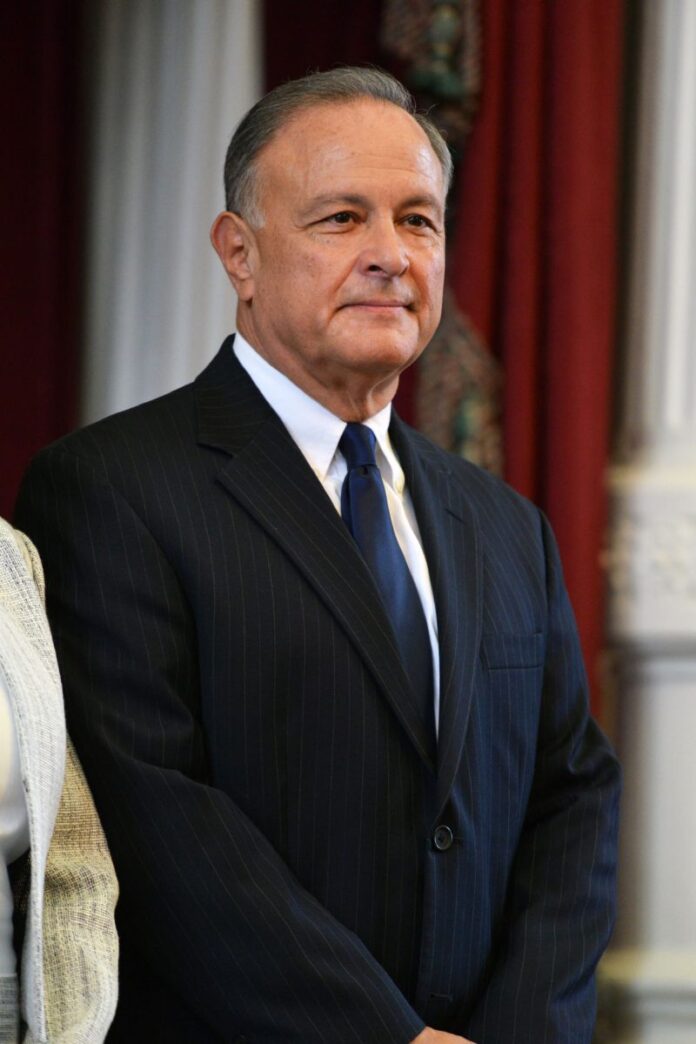SAN BENITO — During the coronavirus pandemic’s first six months, the city helped build up a cash reserve of $6.1 million that might fund street repairs.
Earlier this week, Carlos Cascos, the former Cameron County judge who became Texas’ past secretary of state, presented city commissioners with the city’s annual comprehensive financial report for the 2019-2020 fiscal year.
San Benito earns clean audit(Opens in a new browser tab)
“The financial condition of the city of San Benito is healthy and strong,” Cascos, with the certified public accounting firm of Cascos & Associates, told commissioners during Tuesday’s meeting. “The city of San Benito is in better financial shape than a lot of other communities that I’ve seen — smaller or even larger.”
Cascos lauded the city’s administration.
“You all have a great finance department. But, of course, it comes from the leadership, the way it goes up — the city manager, city council,” he said. “I think you’ve got a great team working right now and I trust that they will continue seeing those positive efforts in the future.”
The pandemic’s economic slowdown didn’t stop the city’s retail sales tax collection from climbing.
Cascos: Valley’s growth ‘encouraging’(Opens in a new browser tab)
“ The pandemic has wreaked havoc on a lot of financial institutions,” Cascos said.
As part of the city’s general fund, its budget stood at $13.1 million, covering expenditures of $11.4 million, while managing its long-term debt at $24.7 million.
Amid the nation’s economic slowdown, the city’s sales tax revenue climbed to $5.7 million, up from $5.1 million last year.
City builds fund balance
Meanwhile, the budget’s unassigned fund balance stood at $6.1 million, enough to run the city for 198 days, more than doubling the state’s recommended minimum of 90 days.
“What folks, bonding agencies, financial institutions, even yourselves want to look at is what that unassigned number is,” Cascos said. “Based on a lot of the municipalities that we do throughout South Texas, you all exceed the expectations in terms of the amount.”
Cascos described the fund as a “savings account.”
“It’s an emergency fund and considering where we live on the coast, that’s exactly what that rainy day fund is — it’s for unexpected expenditures,” he said.
But officials could dip into the reserves to cover non-recurring expenses, he said.
“There’s nothing wrong with having that level of unrestricted fund balance,” he said. “It gives you a lot of latitude if you want to encumber $1 million or whatever for a specific reason.”
Funding source
Amid discussion, Commissioner Rene Garcia asked Cascos whether officials could dip into the reserve to fund projects such as street repairs.
“To me, that sounds like a big number out there,” Garcia said. “It is and it sounds good and it sounds healthy but I feel more appropriations of funds — we have a lot of problems we need to fix here in San Benito. I like the big number but I don’t like it in the unassigned.”
In response, Cascos told Garcia officials could set aside part of the reserves to fund projects.
“You can invest it in infrastructure, in fixing some streets — things of that nature,” he said. “Yes, you can.”
Street project
Last month, commissioners launched a $1 million project aimed at paving parts of 12 streets — about 53.5 blocks — scattered across town.
To fund the project, City Manager Manuel De La Rosa pulled $550,000 from a $4 million reserve, bolstering the annual $450,000 street repair account to come up with the $1 million price tag.
Now, officials are searching for more money to repair pot-holed streets winding across much of the city.





